Cactus Survey
>> Monday, February 24, 2014 –
cactus,
winter damage
Saturday was another mild one here in St. Louis, and I took the opportunity to take a closer look at my cactus bed. I was not sure what I'd find but expected to see some prickly plants that held up better than others.
As I approached, at least I could make out some familiar forms -- they hadn't all turned to mush under the snow. That's a good start, right?
I began at one end and just photographed everything, working my way uphill (to the west, toward the street):
The first plant looked pretty good:
One of the little cactus I grew from seed. Perhaps it is uprooting a little bit, but doesn't seem to be damaged. Whew!
Next up, a mixed result:
Opuntia macrocentra (one of my favorites) looking very much burned in some parts, but not too bad in others:
Glad I had two plantings of that one! (They are right next to each other -- I wonder what the difference was?)
Next up, Opuntia aurea ‘Coombe’s Winter Glow’ looks to be in good shape:
If you're not familiar with Opuntia (or "prickly pear" cactus), the wrinkling is normal: reduced water content improves cold-hardiness. What we're looking for here is bad coloring: browns, yellows, whites -- anything but the green and purplish hues of healthy tissue.
Another one that looks good:
That's Opuntia 'Dark Knight', looking fine as far as I can tell. I wasn't in the mood to move the leaves yet for a full inspection, as I was bare-handed.
The biggest of my grown-from-seed cactus looks a little iffy to me:
The upper part of the plant is distressingly brown. We'll see what happens here, but it's a little disappointing.
This little guy looks fine though, although he's a bit shy at the moment:
This Opuntia rhodantha hybrid ‘Hanksville Rose’ I'm not sure about:
The color is a little off, so I may just have to wait and see what it does once it warms up.
The Opuntia macrorhiza I wasn't worried about, as this grows in Missouri:
It's quite similar in appearance and hardiness to the more common Opuntia humifusa, which I believe is what my neighbor has a big patch of in their front yard.
This one looks pretty good too:
The problem is, when they're all prostrate and shriveled it's harder to recognize them. I think that might be Opuntia basilaris x humifusa.
Is this next one Opuntia phaeacantha x pinkavae ‘Nambe Sunrise’? I don't think so, but I'll have to check when they fill back out. Looks to have a bit of damage in places:
Maybe this next one is the Opuntia phaeacantha x pinkavae ‘Nambe Sunrise’ instead? I don't know, but it is certainly the wrinkle champ of my collection! (Maybe they both are, now that I look at them.)
Looks to be in good shape too.
Another of the unknown seedlings, looking quite good:
On the end of the bed, what I already knew would be a scene of carnage based on the potted specimens on my porch:
Opuntia cacanapa 'Ellisiana', looking about as dead as an Opuntia can. This is why I wasn't too concerned that the deer tried to eat it. Just not quite cold-hardy enough for our typical winters.
Overall, not as bad as I expected. It would have been nice to have seen everything here survive the winter, but that was probably more than I should have hoped for.
.



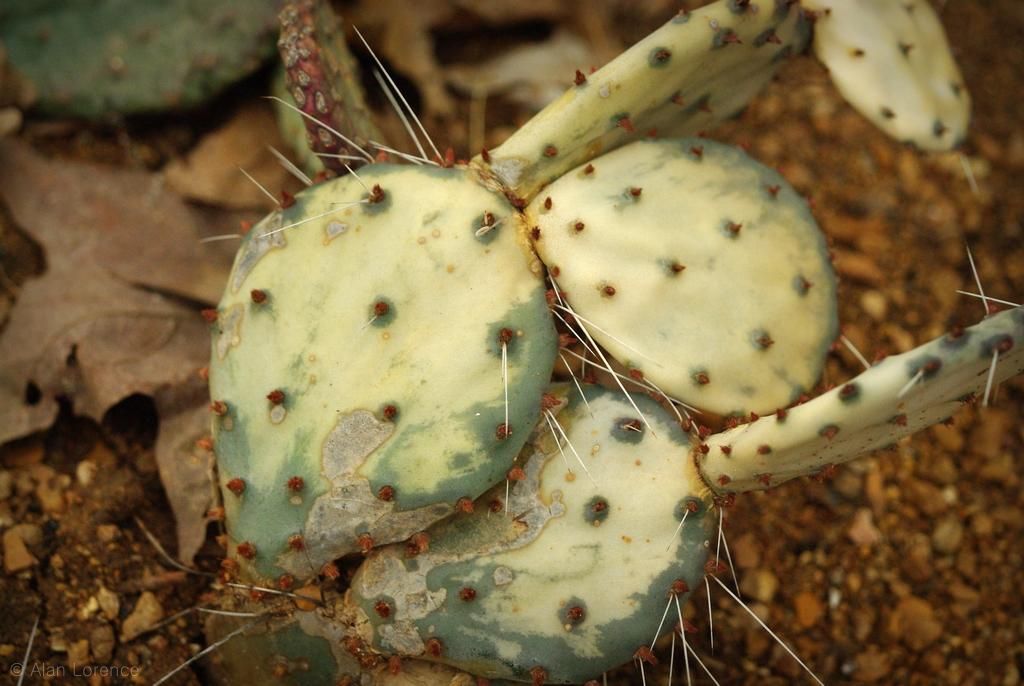



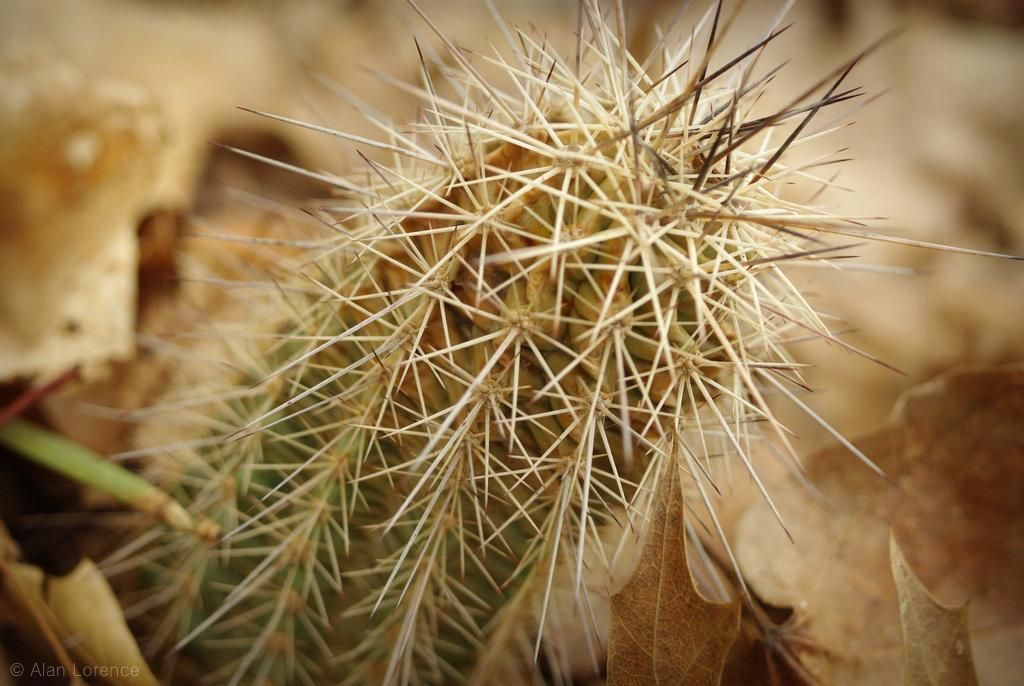

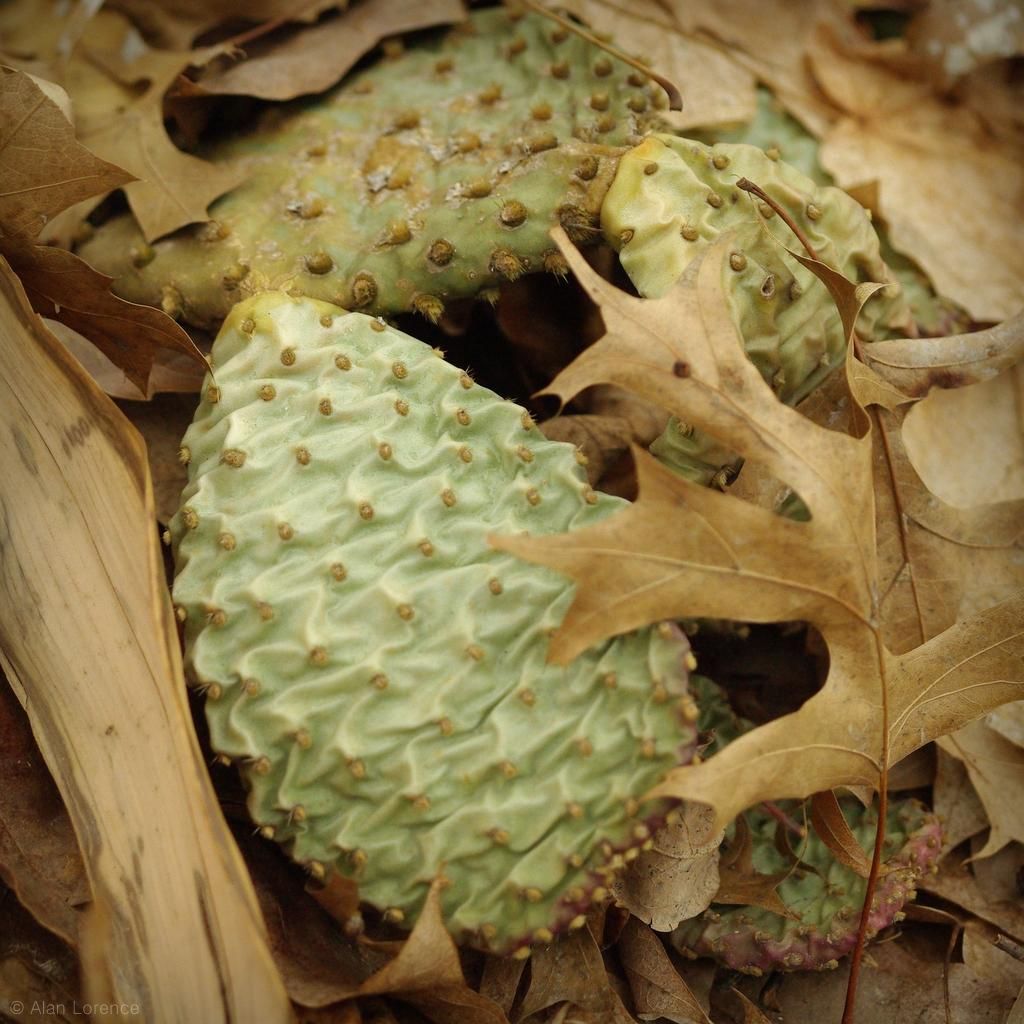



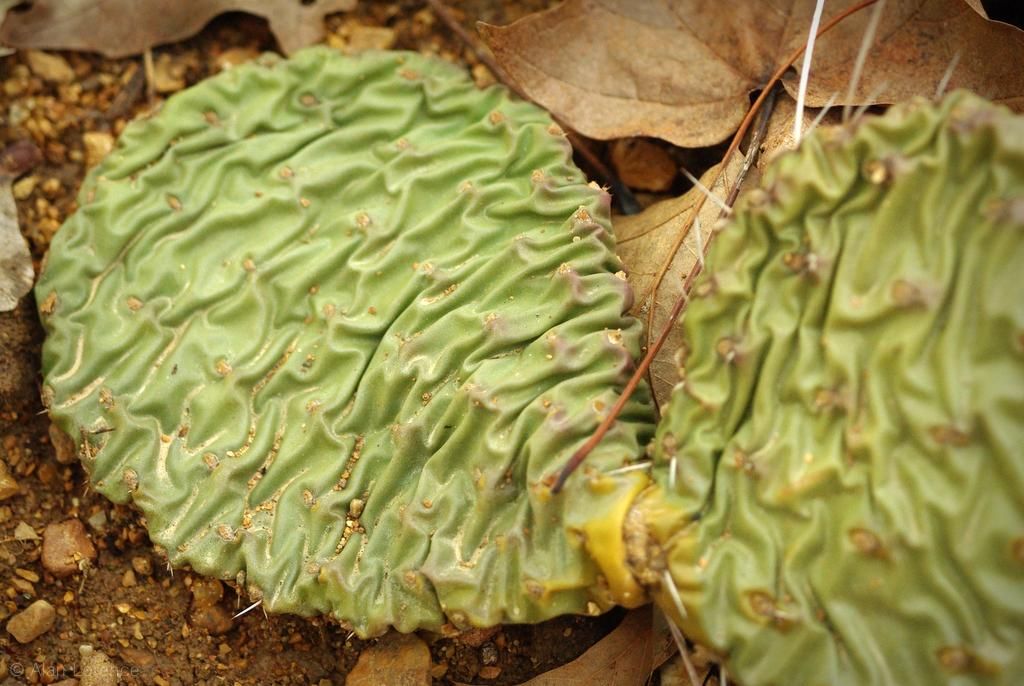
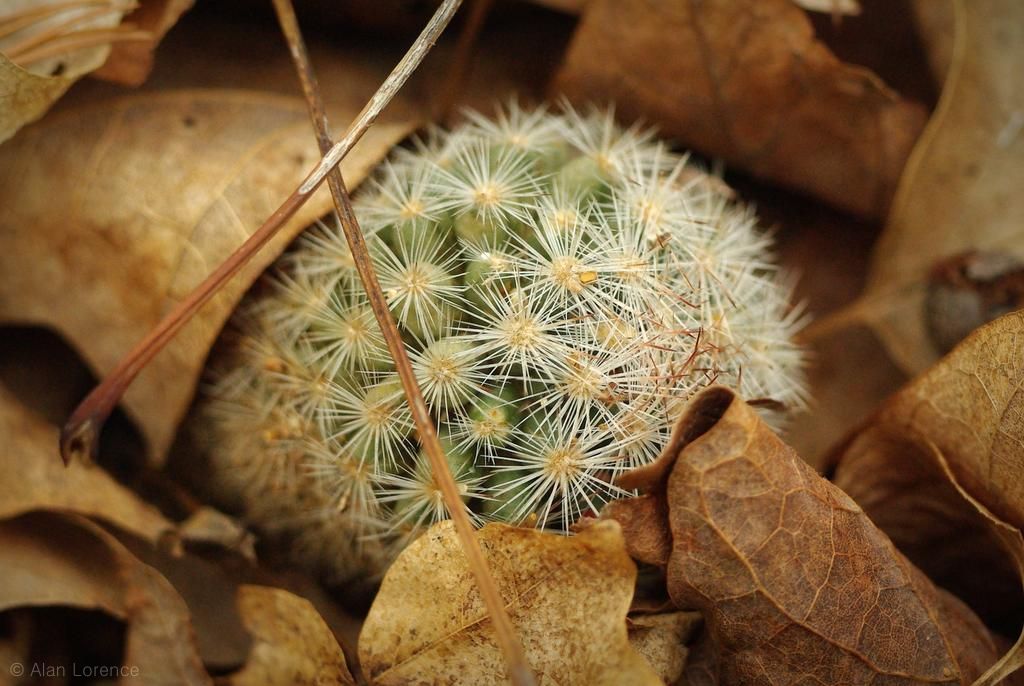





Considering how cold it got at your place this winter, I think your cactus patch fared very well. Looking forward to seeing these guys perk up as spring arrives.
Indeed looks like your cactus collection has handled the cold quite well. I do find it interesting there are so many leaves. Around here that would be a kiss of death as they'd be very waterlogged and keep any air from circulating around the plants.
Loree: I can't keep the leaves away! There's an oak 15' away that drops leaves slowly all winter long, and when there's no snow cover they blow right into these beds -- I have as much raking in the spring as I do in the fall over here (well, almost).